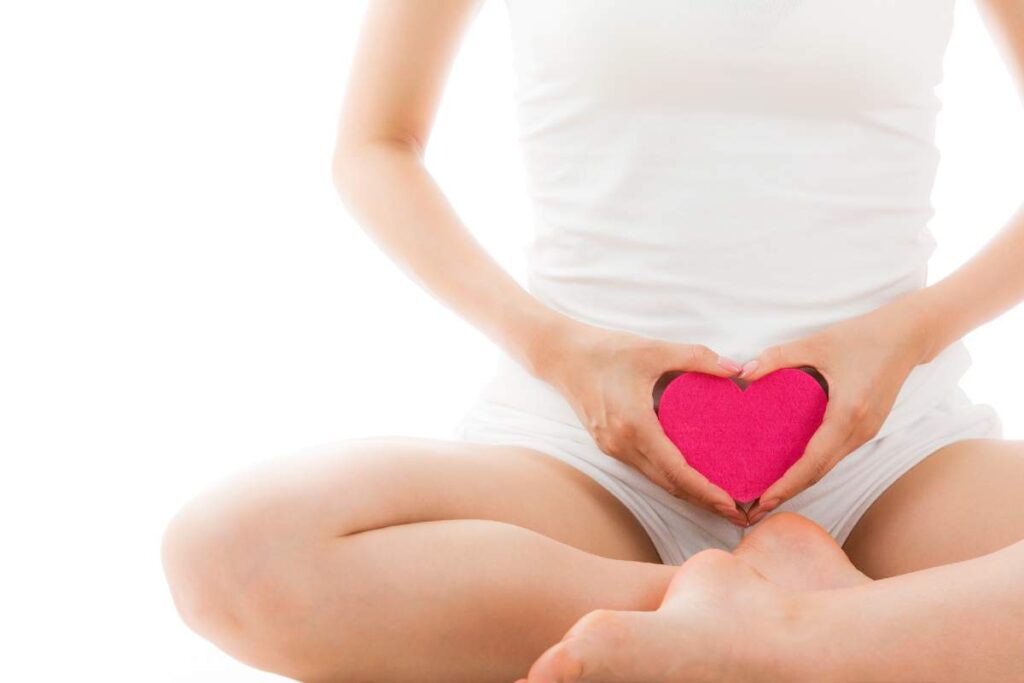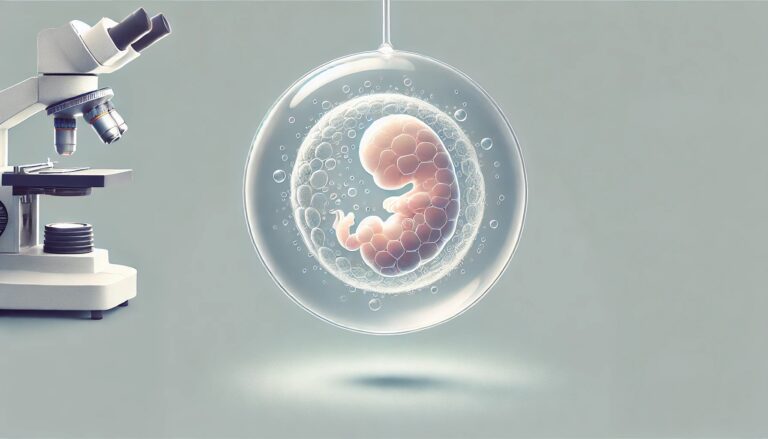Table of Contents
- 1 IVF double donation: When to opt for donor eggs and sperm
- 2 IVF with double donor: How does the process work?
- 3 Understanding success rates in double donation IVF
- 4 IVF using donor sperm
- 5 IVF with double donors in the UK
- 6 IVF double donation in Spain
- 7 Double donation in the Czech Republic
- 8 Double donation treatments in Greece
- 9 IVF double donation in North Cyprus
- 10 Double donation IVF in Portugal
- 11 Double donation in Ukraine
- 12 Understanding the emotional impact of IVF with double donation
- 13 FAQ
- 13.1 Which are the best clinics in Europe that specialize in IVF with double donation?
- 13.2 What is a double donation?
- 13.3 Can you undergo IVF with donor sperm?
- 13.4 How successful is IVF with double donation?
- 13.5 What is the cost of IVF with donor egg and sperm?
- 13.6 What legal factors should be taken into account when undergoing IVF with donor eggs and donor sperm?
- 13.7 What is the difference between using fresh and frozen donor eggs and donor sperm?
- 13.8 What support is available for single women undergoing IVF with donor eggs and donor sperm?
- 13.9 Can I choose my egg and sperm donors, or does the clinic make the selection?
- 13.10 What is the cost of IVF with double donation in different European countries?
- 13.11 Are there any additional costs for medications, donor compensation, or storage of embryos?
- 13.12 Does insurance cover any part of the IVF process with a double donation in Europe?
- 13.13 What is the typical timeline for an IVF cycle with double donation, from initial consultation to embryo transfer?
- 13.14 What should I know about travelling to another European country for IVF treatment, including visas and accommodation?
IVF with donor eggs and sperm or double donation treatment refers to procedures where an egg or sperm has been donated by an individual to assist male or female patients conceive. A double donation may be used when the man or woman cannot produce their own viable sperm or eggs capable of creating a pregnancy e.g. in case of advanced maternal age or poor egg quality, or in cases which involve single women or same-sex couples.
Treatment providers may have their own gamete banks to retrieve donations from or use the services of a third-party bank. Egg or sperm donors are compensated for any donation and are screened to ensure they are physically, psychologically and genetically fit to donate.
On the back of increased demand for donor treatments individual clinic providers have invested in developing their own donor banks which alongside independent third-party sperm and egg banks have ensured that patients can generally satisfy their specific requirements by accessing gametes in a number of ways.
IVF with donor eggs and sperm have meant that many more people have had the opportunity to become parents, but such treatments do come at a price, and not necessarily just a financial one. Naturally, patients might wonder whether any baby born from a donor will inherit their physical or mental characteristics; whether accepting a donation carries any risk to the unborn baby or having to decide what information about the donor treatment to share with the child as they grow.
Appropriately regulated and registered IVF clinics screen donors to ensure their physical and mental well-being and many provide additional support services designed to ensure patients who undergo donor treatment receive all the information they require pre- and post-procedure.
This article illustrates how both egg and sperm donation treatments are offered in a select number of European countries, the cost of the treatments offered and any restrictions regarding access to the procedures.
IVF double donation: When to opt for donor eggs and sperm
The use of donor eggs and/or donor sperm may be advised by a doctor in cases where a negative diagnosis is made; that is to say, when there is no or very little possibility of a pregnancy being achieved because of you or any partner’s ability to produce viable gametes.
This may be because of a number of fertility problems linked to a woman’s endometrium including ovarian function or other disorders like endometriosis which might make conception difficult. The use of IVF with donor eggs and/or sperm might also be advisable where a single woman is seeking treatment or in the case of a lesbian couple.
For male patients, the use of a sperm donor might be advisable when there are issues involving sperm quantity, quality and morphology. It may also be appropriate when male factor infertility has been identified in previous failed in vitro fertilization cycles or in situations where the patient has undergone an irreversible vasectomy or chooses not to reverse it.
IVF with double donor: How does the process work?
IVF with donor eggs and sperm involves the involvement of a second or third party in the assisted reproduction process. Oocytes or/and sperm are collected from a healthy donor and made available to recipient couples who cannot achieve pregnancy due to the absence of a partner, or because of other fertility issues like poor sperm or egg quality, or genetic abnormalities. hereditary disease, and others
Donors undergo extensive screening by fertility clinics or sperm/egg banks to ensure they are physically and psychologically healthy. Donors should be young (usually under the age of 35) and healthy, and capable of producing viable eggs and sperm.
Depending on the country where the sperm and/or donation treatment is given the donor’s details will either be anonymous or will be made available to the recipient couple, and any child born as a result of the double donation treatment at some point
The fertilisation process will be undertaken in a laboratory and when embryo cultivation has been achieved the embryo is transferred to the recipient, hopefully resulting in a pregnancy which lead to the birth of a healthy baby.
Understanding success rates in double donation IVF
IVF with donor eggs and/or sperm is a much-requested and much-advised treatment. in general IVF treatments of this kind are more successful than IVF procedures using patients’ own eggs and sperm.
Whilst we have to display some caution to some of the claims made by fertility clinics who suggest that donor treatments can get to 80 or 90% success rates, on average success rates in treatments where a double donor is involved are higher than in IVF cycles which use the patient’s own eggs and sperm.
According to the most recent figures produced by SART (Society for Assisted Reproductive Technology) in the United States live births (the most important indication) can rise to 45 – 50% when frozen or fresh donor eggs are used.
IVF using donor sperm
Sperm donors are screened to ensure their psychological and mental well-being and undergo a semen analysis.

IVF with double donors in the UK
Since 2005 anyone born as a result of IVF with double donation, at the age of 18, can request the donor’s name and last known address; therefore, donors are regarded as non-anonymous. All donors are checked to ensure they are genetically and psychologically healthy.
The use of donor sperm can add an additional £500 plus to the overall cost of IVF treatment and can be used by single women, lesbian couples and unmarried heterosexual couples. Waiting times are relatively short and as clinics use the services of external banks.
IVF double donation in Spain
Spain continues to be one of the go-to places for international patients seeking donor treatments. It is not permissible to use the sperm of a friend or family member and donors are anonymous, meaning their personal details are not accessible by any child born as a result of their donation.
In fertility clinics sperm and gamete donors are comprehensively screened to identify the presence of any genetic or sexually transmitted disease.
The use of donor sperm can add an additional €500 to €1,500 to the overall cost of IVF treatment. IVF with donor sperm is available to single women, lesbian couples as well as unmarried heterosexual couples. The availability of diverse donors is good, and there are no waiting times.
Dr. Laura Garcia, medical director at Clinica Tambre explains:
During the process several factors are considered, including the recipient’s physical traits, blood type, and facial similarity assessed through Fenomatch technology. This comprehensive approach ensures that the selected sperm donors not only match the recipient’s physical characteristics but also provide overall reassurance that the best donor has been chosen.
Double donation in the Czech Republic
The country is rapidly becoming one of the more popular destinations for patients seeking fertility treatment with double donors. Checks are made to ensure selected donors don’t pass on any genetic or sexually transmitted disease. Using donor sperm will add an additional €200 or so to costs and is available to single women or those in a same-sex relationship. Donor availability is limited mostly to Caucasian phenotypes although working with external gamete banks ensures clinics can offer alternative donors. In the Czech Republic there are no waiting times for IVF with donor eggs and sperm.
Double donation treatments in Greece
Sperm donors are anonymous across Greece, and all sperm and egg donors undergo a series of tests to ensure their physical and genetic suitability.
The cost to use donor sperm could reach €800 per treatment and is only available to single women but not strictly for those women in a same sex relationship. There is no waiting time in fertility clinics in Greece.
IVF double donation in North Cyprus
In North Cyprus, sperm donors are anonymous. Treatments involving sperm donors can increase the overall cost by €200 to €500 – as fertility patients would expect all donors to be psychologically and genetically fit; there are no waiting times for diverse donor sperm and eggs.
Double donation IVF in Portugal
Recent legislative change in Portugal means that sperm donors are considered as non-anonymous. Donors are screened to ensure they are genetically and physically healthy and the use of donor sperm is subject to an approximate additional cost €450. It is available for single women, same-sex (women) and heterosexual couples. The country offers a diverse donor database and can, with the help of third-party gamete banks offer treatment without a waiting time.
| Country | Waiting Times for Treatment | Donor Availability | Health Checks for Donors |
|---|---|---|---|
| UK | Short | Good (varied races) | Comprehensive screening |
| Spain | None | Good (plentiful donors) | Comprehensive |
| Czech Republic | None | Good (varied options) | Thorough checks |
| Greece | None | Good (varied options) | Health screening |
| North Cyprus | None | Good (from clinics and banks) | Psychologically and genetically fit |
| Portugal | None | Good (diverse options) | Genetic and physical assessments |
Double donation in Ukraine
Sperm donors are anonymous in Ukraine, and patients requiring donor sperm will pay an additional €350. Sperm and gamete donors (mostly Caucasian) are required to pass stringent screening tests to ensure their fitness to donate and is available for single women and married (heterosexual) couples but not for same-sex couples. There are no waiting times.
Understanding the emotional impact of IVF with double donation
Deciding whether to undergo IVF with donor eggs and sperm is a big decision and is one that is only considered when all other options have been considered and discounted. As a patient, you should discuss the practical arrangements with your treatment provider and seek consultation, and if necessary, counselling with an appropriately qualified professional who will discuss the potential emotional and psychological ramifications of receiving this type of treatment.
One important point to remember, however, is that the donor merely performs the biological aspect of conception. Once a pregnancy is achieved it will progress like any other ‘natural’ pregnancy, your role as a ‘mother’ or a ‘father’ will be just that.
A lack of genetic association can also lead the patient to question whether the future baby will get any physical or behavioural similarity with them. The genetic composition is complicated and therefore there are no guarantees or certainties that physical resemblance will be passed onto a child in any circumstance.
Emotional concerns and solutions
| Emotional Concern | Description | Solution/Support |
|---|---|---|
| Genetic Association | Patients may worry about the lack of a genetic link with the child. | Consultation with treatment providers, counselling, understanding the biological role of donors. |
| Physical and Behavioural Similarity | Concerns about whether the child will resemble the recipient parent physically or behaviorally. | Use of AI and genetic tools to match donor profiles with recipients, emphasizing complex genetic makeup. |
| Psychological Impact | Emotional struggles regarding the ethical dilemma of sharing the donor information with the child. | Access to experienced therapists and counsellors for psychological support and guidance. |
| Informed Consent | Difficulty in reaching a fully informed decision due to the complexity of information required. | Multiple consultations, independent agencies, and reliable information sources. |
The emotional aspect of double donor treatment can not be underestimated, and there are a number of psychological and practical considerations which need to be addressed.
We know patients will have many unanswered questions regarding treatments using both donor egg and sperm, and we hope this article has been useful. We have provided below some answers to the questions we are asked most often.
FAQ
Which are the best clinics in Europe that specialize in IVF with double donation?
International patients usually choose: Clinica Tambre Madrid (Spain), Centro de Fertilidad Barcelona (Spain), Eugin (Spain), Dunya IVF Clinic (North Cyprus), Cyprus IVF Hospital (North Cyprus), emBIO Medical Center (Greece), Newlife IVF Greece (Greece), Ferticentro (Portugal).
What is a double donation?
Double donation is a form of in vitro fertilization (IVF) treatment where patients with infertility issues use gametes and sperm of healthy donors to get pregnant.
Can you undergo IVF with donor sperm?
Yes, you can. The treatment is designed for heterosexual and lesbian couples as well as single women. Depending on the country in which you receive treatment, donor identity may be anonymous or non-anonymous.
How successful is IVF with double donation?
Double donor IVF has very high success rates because of involving healthy donors with high quality sperm and gametes.
What is the cost of IVF with donor egg and sperm?
The cost of treatment using donor egg or sperm will vary. Countries like the Czech Republic, Poland and Ukraine tend to offer the least expensive fertility treatments whilst the more expensive costs are found in the U.K. with countries like Greece and Spain somewhere in the middle.
What legal factors should be taken into account when undergoing IVF with donor eggs and donor sperm?
The legal aspects surrounding donor anonymity differ from one country to another. In certain countries, donors must remain anonymous, whereas in countries like the UK, children born from donors are allowed to discover the donor’s identity when they turn 18.
What is the difference between using fresh and frozen donor eggs and donor sperm?
Using fresh donor eggs and donor sperm involves careful timing between the donor and recipient. On the other hand, frozen eggs or sperm can be stored, providing more flexibility and accessibility. While the success rates are comparable, fresh options might have a slight advantage. Additionally, frozen alternatives tend to be more budget-friendly because they require less logistical coordination.
What support is available for single women undergoing IVF with donor eggs and donor sperm?
Support for single women includes counselling services, peer support groups, financial assistance options, and legal guidance. Some IVF clinics offer specialized programs to help single women address their emotional, financial, and legal issues.
Can I choose my egg and sperm donors, or does the clinic make the selection?
It depends on the clinic’s policies, country legislation and your preferences.
What is the cost of IVF with double donation in different European countries?
The cost of a double donation significantly varies depending on the country and clinic you are undergoing the treatment. In Europe it costs between €4,500 and €15,000, with lower prices in Eastern Europe (Czech Republic, Ukraine) and higher costs in Western Europe (UK, Belgium).
Are there any additional costs for medications, donor compensation, or storage of embryos?
Yes, there are often additional costs associated with IVF with double donation such as medication ( from €1,000), embryo storage:(from €300 per year), and others. To find additional costs, you can ask a clinic to provide a detailed quote, check their website or discuss with your coordinator.
Does insurance cover any part of the IVF process with a double donation in Europe?
It depends on the country and specific insurance policies. To get more detailed information about insurance coverage for IVF with double donation, you can discuss it with a clinic or contact your insurance provider.
What is the typical timeline for an IVF cycle with double donation, from initial consultation to embryo transfer?
From 8 to 12 weeks and can include: a) initial consultations b) donor selection process c) pre-treatment testing and preparation d) donors synchronization e) egg and sperm retrieval f) embryo transfer preparation and transfer g) post-treatment monitoring and pregnancy testing
What should I know about travelling to another European country for IVF treatment, including visas and accommodation?
Most European IVF clinics are experienced in treating international patients and can provide detailed information about the treatment process and documents involved. Additionally, many clinics offer specialized assistance packages that include translation services, airport transfers, accommodation arrangements, and other support to ensure a stress-free treatment.
Updated: 13.09.2024





